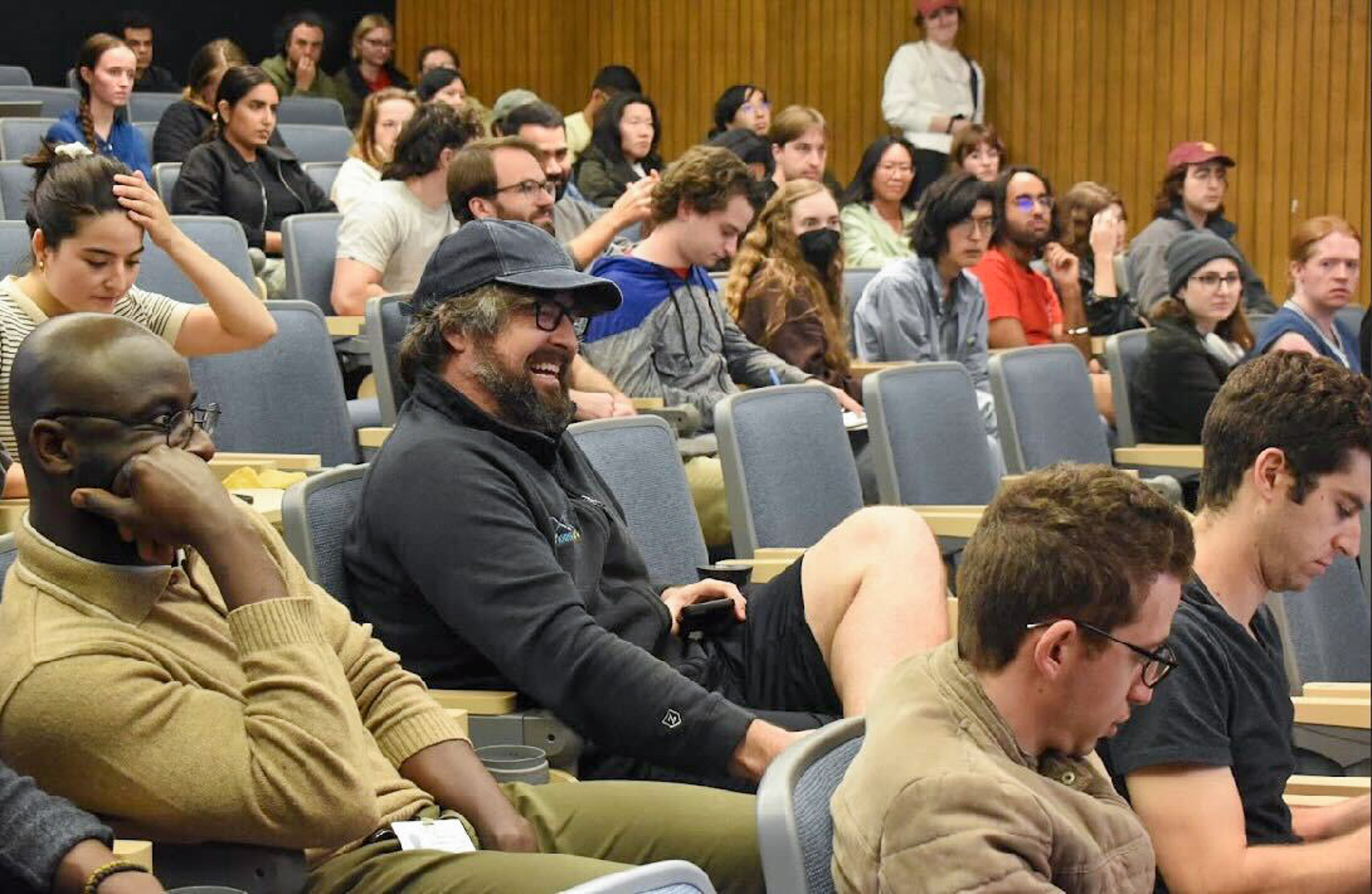UAW Local 4811 leaders meet to fight National Institutes of Health funding cuts
Sydney Campbell presents during a union-wide meeting focused on implementing strategies to fight the NIH funding cuts. (Courtesy of UAW Local 4811 Communications)
By Charlie Hamilton
Feb. 26, 2025 1:36 a.m.
Members of the United Auto Workers Local 4811 joined students across the UC on Wednesday to protest the Trump administration’s cuts in National Institutes of Health funding.
Trump’s policy would decrease NIH funding for indirect costs – any expenses that do not directly go to lab workers or safety measures – to only 15%, said Sydney Campbell, a postdoctoral researcher and head steward organizer for UAW Local 4811 at UCLA, which represents academic student employees, graduate student researchers and academic and postdoctoral researchers across the UC, in a speech to union workers.
Campbell said she worked with other UAW Local 4811 leaders to organize a union-wide meeting focused on implementing strategies to fight the NIH funding cuts. She added that this will decrease funding for many institutions by over 50% and might cause researchers across the country to lose their life’s work and jobs during the meeting.

She also said that while the cuts are proposed to create $4 billion in savings, each dollar invested in the NIH normally generates a 250% rate of return. Campbell added that this would eventually cost the economy about $6 billion.
Jordan Grimaldi, a graduate student in urban and regional planning, said even though she is not directly affected by the funding cuts, she wanted to show solidarity and find community with people working to protest the policy by participating in the day of action.
“If universities aren’t able to conduct research, and people aren’t able to have their jobs, then what are we doing here?” Grimaldi said.
Campbell said as a cancer researcher herself, she believes publicly funded cancer research is critical to ensuring researchers can better understand and treat the disease. She added that such research is heavily dependent on NIH funding.
Aya Konishi, a doctorate student worker in sociology, said the proposed cuts would be detrimental to the important biomedical research done by many graduate student workers and postdoctorates. She added that much of the vital research done by the UC schools could be halted if the proposed cut happens.
Claire Bekker, an environmental health sciences doctoral student and union member, said she is currently relying on a grant from the National Science Foundation for her research and is concerned about how this new policy might affect her funding, which prompted her to join Wednesday’s meeting.
“Our goals were to organize our colleagues around this issue and figure out ways that we as union members and as citizens can try and get involved in preventing the cuts,” Bekker said.
Michael Wasney, a doctoral student in human genetics and a UAW Local 4811 organizer, said the cuts to NIH funding and caps to indirect costs represent an existential threat to public education and research at public institutions. Wasney added that he wants more people – including labor union members – to advocate for public research and education to their legislators.
Similarly, Campbell said in a speech to union members during the meeting that there are three things they could do to fight back through organized labor: call their legislator, tell their research stories and organize more coworkers to join the union.
Wasney added that people must think of what they want their role to be in terms of adding to the scientific body of knowledge and fighting disease, as the cuts pose a threat to all of them.
“These funding cuts also represent (an) attack on the next generation’s ability to get world-class education,” Wasney said. “What will that mean for our country in 20 years?”
